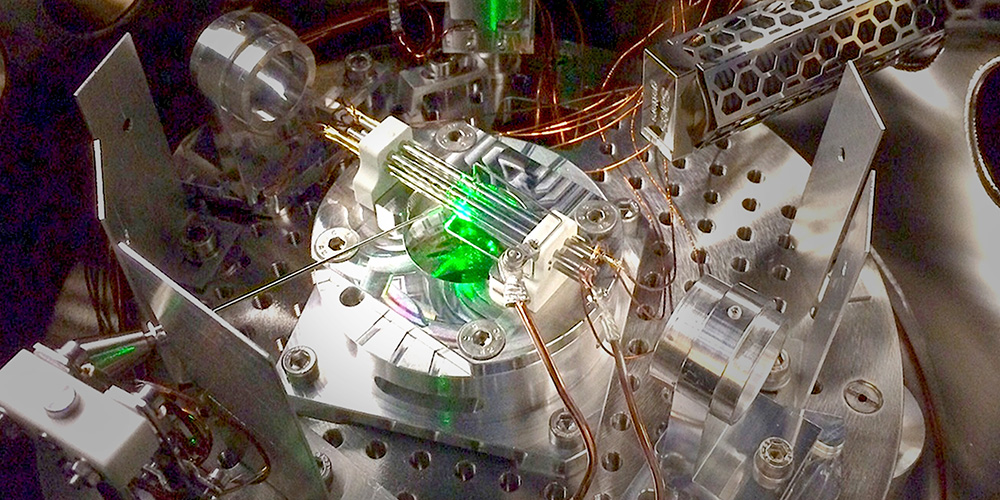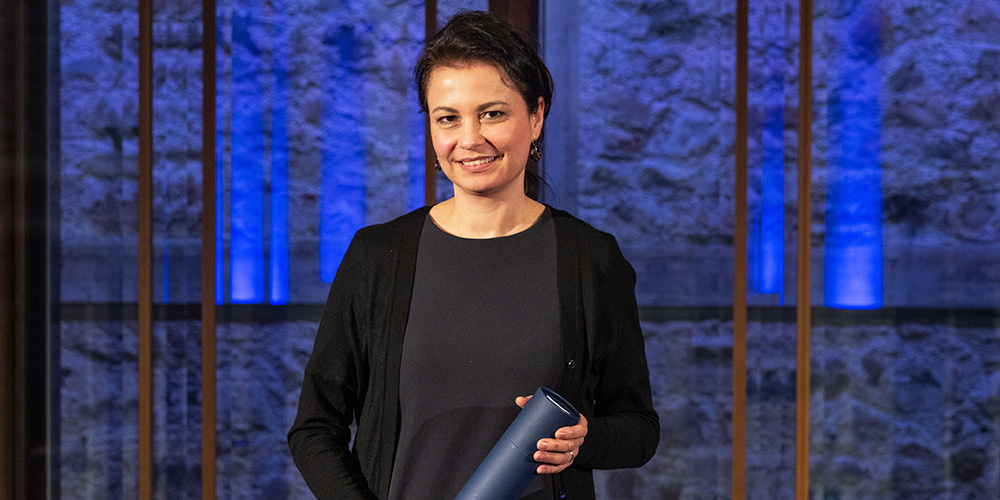Ambizione: Your First Step Towards Scientific Independence
Ambizione—a traditional career funding scheme from the Swiss National Science Foundation—is designed to enable early career researchers to pursue groundbreaking projects across diverse fields and give them the freedom to work on their own independent project.
Since the start of the program in 2008, 155 researchers have secured their own funding to conduct independent research projects at the University of Basel. We spoke to a few of our current grantees about their projects and experiences with applying for an Ambizione Grant.
Success Stories
Benjamin Krebs, Faculty of Economics
My project studies the economic and social consequences of air pollution. I focus on how people adapt to cleaner air through migration, how wildfire smoke affects infant health, and how electrification policies spatially redistribute local air pollution.
Fanny Lalot, Faculty of Psychology
My project investigates the impact of experiences of betrayal on the propensity to trust others. While much is known about the effects of betrayal for trust in the betraying person, much less attention has been paid to generalised effects regarding other people. To illustrate, instead of asking how much trust someone can extend to a romantic partner after having been betrayed by them, the present proposal focuses on the betrayed person’s willingness to trust other romantic partners in the future.
Jochen Rehmert, Department of Social Sciences
My project is addressing the question why political parties sometimes do not re-nominate sitting Member of Parliament (MP) using observational and survey experimental research methods. The goal is to understand what types of MPs are not re-elected and what this means for the representation of women and younger people in national parliaments.
Maximiliane Berger, Department of History
My project is about economic sanctions in medieval Europe. I am particularly interested in how economic coercion was positioned relative to war, and in what happened to social and political relations when sanctions were employed.
Raphael Knaier, Department of Sport, Excercise and Health
The project investigates if the timing of our behaviors such as exercise, nutrition and sleep affect our health. In detail, we investigate if individualizing timing of exercise can improve blood sugar and strength.
Hardy Chan, Department of Mathematics and Computer Science
This research project aims to achieve breakthroughs in the Calculus of Variations and Partial Differential Equations, by exploiting the interconnections between phase transition, geometry and singularity analysis.
Why should you apply to Ambizione?
Ambizione is a chance to lead your own research project, build a scientific profile, and gain recognition in your field. The grant can be a career booster by providing both financial support and recognition in the Swiss higher education landscape and beyond. It gives to four years to concentrate on research and boost your independent publication record.
Fanny Lalot: I loved the idea of creating my very own lab (no matter how small!) and to pursue my ideas independently.
Hardy Chan: I heard about this possibility when I was doing a postdoc in Zurich. I found that it was an excellent opportunity to continue my career as a researcher
Raphael Knaier: The opportunity to be a principal investigator on my own research project and the chance to supervise junior staff.
What was the most important lesson you learnt when preparing your application?
Jochen Rehmert: I learned that writing a research proposal is not the same as writing an academic article. In a proposal, one often has to write in a way as if the research has already been done. Besides this, it made me aware of considering potential risks to the research output when thinking about future projects. What happens if I cannot get this or that data, is there an alternative? Anticipating potential risks and coming up with potential alternatives to secure the success of the proposed research is something I now tend to give out as advice for anyone applying to research grants.
Maximiliane Berger: Of course, every proposal is different, but I found the proposal phase had a benefit of its own, because the format encourages you to be clear and also down-to-Earth about what you want to do when, and set it out in straightforward, no-frills text, both in the written application and the interview.
Benjamin Krebs: Most importantly, feedback from colleagues and other Ambizione Fellows was invaluable. I also found that clear communication is essential: both the written and oral parts should highlight why the project matters.
Hints from the Grants Office
The Ambizione evaluation is a two-step process.
In the first round, applicants submit the research plan and additional documents, such as a CV and mobility statement. An interdisciplinary panel at the SNSF evaluates the applications and selects the candidates to be invited for the second step.
The research plan is the key document to submit to the SNSF. The text should be interesting to panel members who are not exactly from the same research field and exciting for the experts.
The second step consists of external peer review and an interview with the panel.
Many applicants reported that receiving support and feedback from colleagues within and beyond their specific research field was helpful.
Where are our grantees heading to?
Ambizione is meant as a springboard and as the name says it supports young researchers with great Ambitions. Grantees gain scientific independence, a stronger profile, and experience in managing their own projects. As a result, they are well equipped for the next step of their scientific career.
A big thank you to our current grantees for sharing their experiences. For their next step, they plan to apply for Tenure-Track positions, as well as further career funding like the SNSF Starting Grants. Thus following in the footsteps of our former grantees the majority of which have gone on to obtain professorships both within Switzerland and aboard.
Who can apply and how?
Ambizione is open to researchers who are within four years of completing their PhD (or nine years after the medical exam). Applicants must have at least 12 months of postdoctoral research experience.
The program is open to all disciplines and accepts applications from researchers both in Switzerland and internationally.
Applicants can request up to 250,000 CHF for project-related costs, such as travel, student assistants, or consumables. On top of that, applicants receive funding to cover their own salary for the duration of the project.
The submission deadline is 4 November 2025, 17:00 CET.
Applicants with the University of Basel as a host institution should get in touch with the Grants Office as early as possible. We can provide more details about the administrative process at Unibas.


